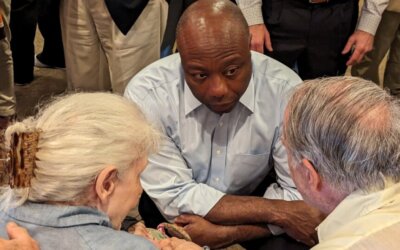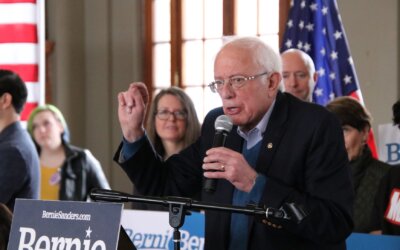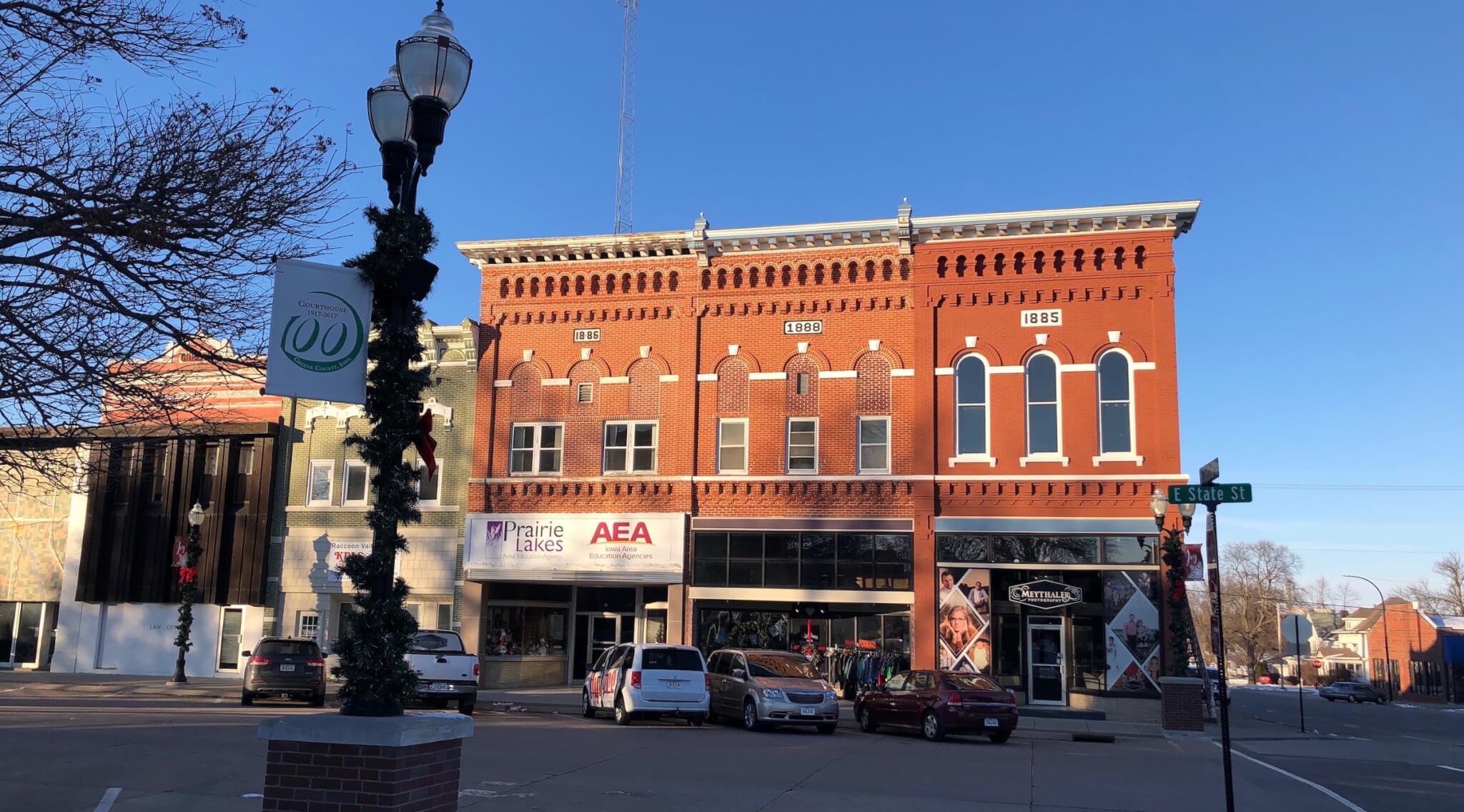
Hillary Clinton won just six total counties in all of Iowa in the 2016 presidential election. Trump took the other 93, often by large margins, including with 60% or 70% or more in many rural counties. In an effort to tamp down those lopsided margins in rural Iowa, One Country Project, an organization launched by former Democratic Senators Heidi Heitkamp and Joe Donnelly, has added J.D. Scholten to their team.
“I learned from studying Berkley Bedell and Tom Harkin, and that was their thing. If they got out to the people, proved that they’re trustworthy, and proved that they’re going to fight for the people that they are representing, they’re gonna earn votes regardless of a person’s voting history,” said J.D. Scholten, who joined One Country’s board earlier this month.
Scholten, who ran against Steve King in Iowa’s 4th House District, and was defeated by just over 10,000 votes (3.4%), spoke with Starting Line about his role with One Country.
One Country’s Mission
One Country Project has launched a grassroots campaign to re-invigorate the Democratic Party’s relationship with rural issues and voters.
“A lot of these rural areas are being forgotten. Economic development is not happening, and what we’re seeing is a lot of the wealth in rural areas being pulled out of these communities through a lot of different ways,” Scholten said. “A lot of it has to do with corporations maximizing profits, and we’re not seeing the entrepreneurship, we’re not seeing the investments in these rural communities. Ultimately, One Country is just trying to be that bridge between rural communities and the Democratic Party.”
Bringing Rural Issues To The Forefront
Rural issues have rose to prominence during the 2020 election cycle thus far as Democrats try to learn lessons from their poor showing in rural America the past several cycles.
John Delaney has already visited all 99 counties in Iowa, and others are working their way toward that goal. In their first trips to Iowa this year, many of the Democratic candidates even made a point to visit towns in rural Western Iowa before going to more urban areas on the eastern side of the state.
But even as progressive policy ideas have gained support across rural, Midwestern states, Democratic candidates are still battling to win more votes.
“In the last cycle, you saw rural, conservative areas vote to support workers’ rights and to expand Medicaid. We saw it in Utah, Idaho, Nebraska and Missouri,” Scholten explained. “Democratic policies are winning, but not necessarily Democrats, and that’s what is happening with so much polarization.”
Scholten ran a strong rural campaign in 2018 and hopes to continue that momentum with One Country, drawing attention to communities that are often overlooked.
“We need to make sure that these small communities still have the independence they want,” Scholten said. “And you do that by bringing technology into these communities, and making sure that our economy works for all of us, not just these urban and suburban areas where all the economic development goes.”
Building One Country
For now, One Country is early in their construction process. Over the next few months, they are looking to increase their staff and capacity to help Democrats run effective rural campaigns.
“[Democrats] should try and compete in every state. I feel with the way that the rural communities are feeling abandoned and what’s happening with the agricultural economy, there’s opportunity to win votes all over,” Scholten said.
Though it may feel like a long time ago to some, Barrack Obama ran a strong rural campaign in 2008 and 2012, winning 53 of Iowa’s counties in 2008 and 38 in 2012. But in 2016, many Democratic candidates seemed to focus more on urban areas and ignore vast swaths of rural voters. Donald Trump took advantage of that.
But as Trump approaches his bid for re-election, patience for his policy decisions have been running out in rural areas as health care costs rise, jobs move to urban centers and other countries, and an ongoing trade war hurts farmers every day it continues.
The Messaging Challenge
Scholten’s 2018 campaign put an emphasis on campaigning in every county – he drove his campaign RV to small towns all across the 4th District. However, Scholten said candidates must take it a step farther and assure voters they’re going to fight for their way of life.
“The way Democrats campaign is very urban; the field programs are very urban. But they need to be everywhere, and connect with anyone and have a message for not just agricultural folks, but everyone in rural areas,” Scholten explained. “And I wouldn’t say that Republicans are doing a great job of getting out there; just their messaging of lower taxes, and that’s it pretty much – or the simplification of their messages.”
There were national conversations within the party after 2016 of whether Democrats should even attempt to campaign for the rural vote. But for Scholten and One Country, the issue is not whose vote should be fought for and deemed legitimate. Instead, it’s about connecting with voters to learn how candidates can make peoples’ living situations easier or better, and making the commitment to do so.
“Politics is about improving people’s lives. I don’t really get caught up in what type of Democrat can win. I think the Democrat who can win is someone who just appeals,” Scholten explained. “Whether it’s a moderate, a progressive, or anywhere else on the spectrum. We just need someone who is relatable and can tell these folks, ‘hey, if you vote for me, your life is going to improve.’”
So far in the 2020 election cycle, candidates have gained support through frequent, elaborate policy roll-outs. But this could be part of the messaging issue when it comes to relating to voters who aren’t registered Democrats or caucus-goers: not everyone feels as passionately about policy proposals.
Scholten and One Country hope to see an emphasis on problem-solving in voters’ daily lives.
“I think this is the message that the Democratic Party really needs to convey to all these folks: Look, we’re here to raise your wages, we’re here to shrink your daily costs and we’re here to protect your rural way of life,” Scholten explained. “I think it’s that simple. And then you can talk about the policies that lead to those things.”
by Josh Cook
Posted 6/27/19
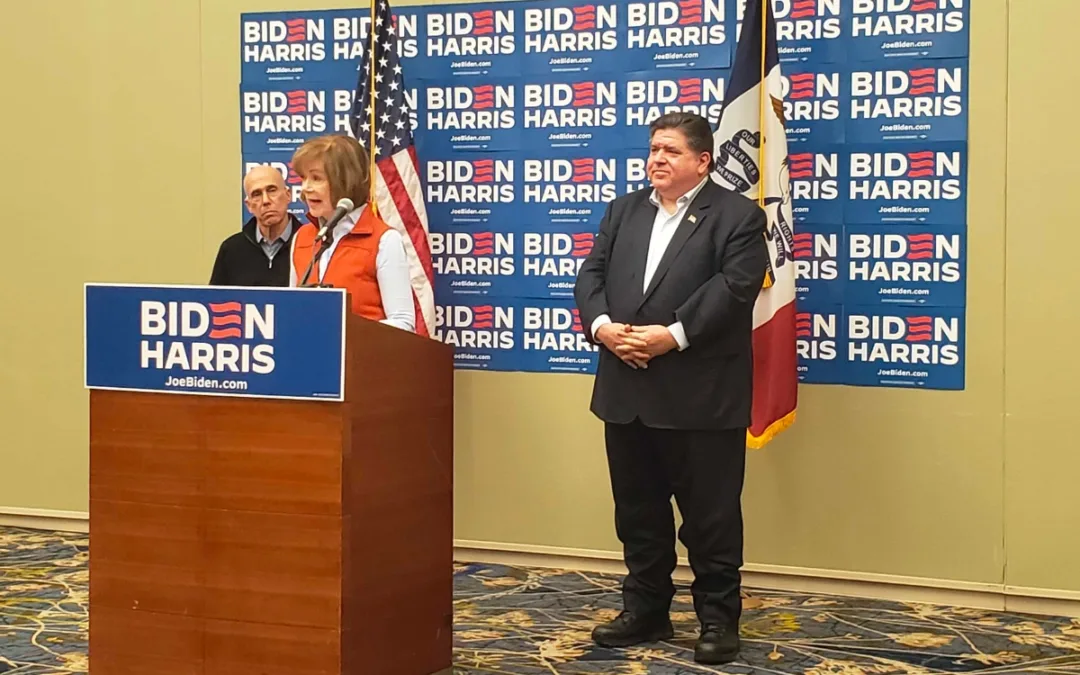
Original, heels or boots: Pritzker says leading Republicans are all MAGA
Illinois Gov. JB Pritzker said all three leading candidates in the Iowa GOP caucus—Donald Trump, Nikki Haley, and Ron DeSantis—represent the same...
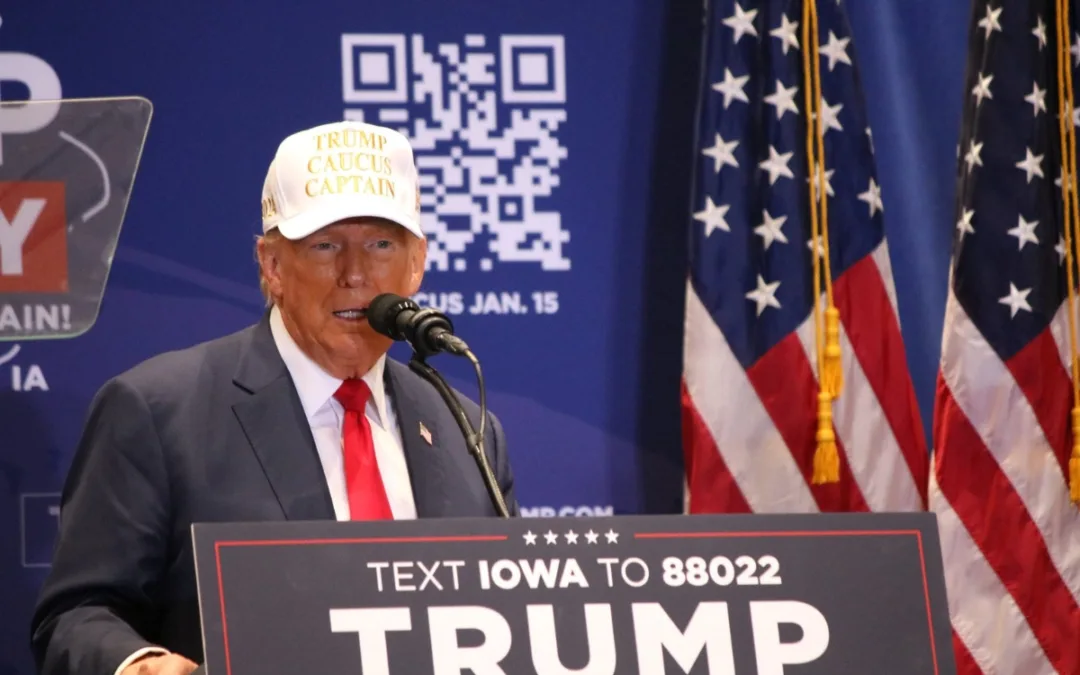
Trump tells supporters it is worth dying to caucus for him
Former President Donald Trump continues to encourage his massive base to turn out in droves for him during Monday’s Republican caucus and told an...

Climate change protesters disrupt Ron DeSantis event
Climate protesters disrupted a Gov. Ron DeSantis campaign event in Ames on Thursday night. Three protesters were escorted out of the room at...

Evangelical leaders predict huge caucus turnout, downplay endorsements
Iowa caucus candidates have racked up big-name endorsements—including a notable last-minute flip flop—but one evangelical leader said none of that...
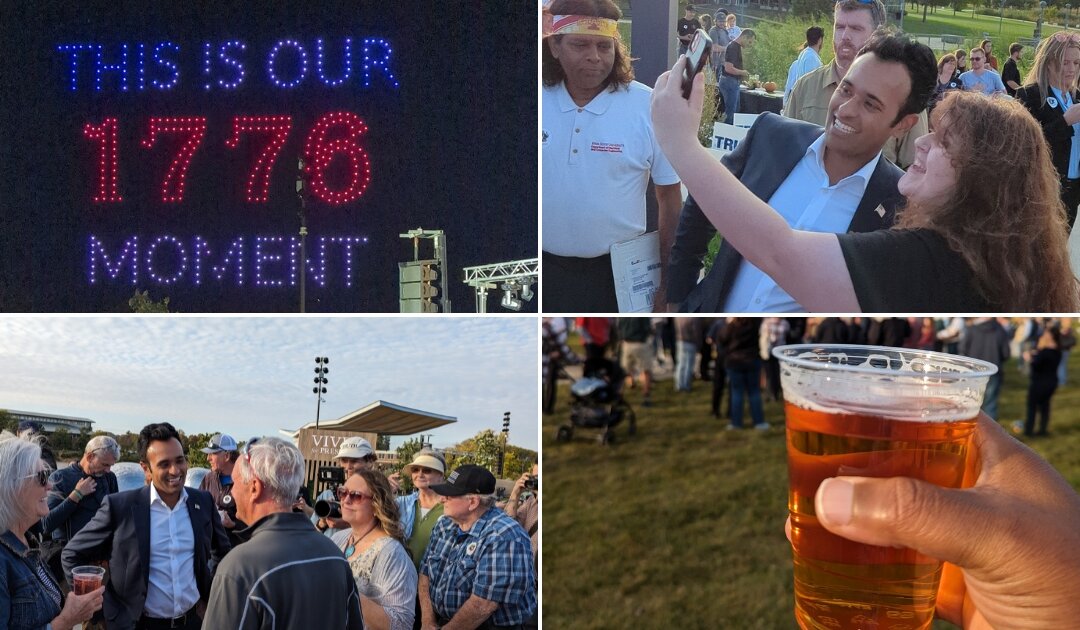
We went to Vivek Ramaswamy’s ‘Vektoberfest.’ Here’s what we saw
As I sat on a park bench eating a bacon-grilled cheese sandwich, drinking an Exile Ruthie straight from the tap, and chit-chatting with a few folks,...
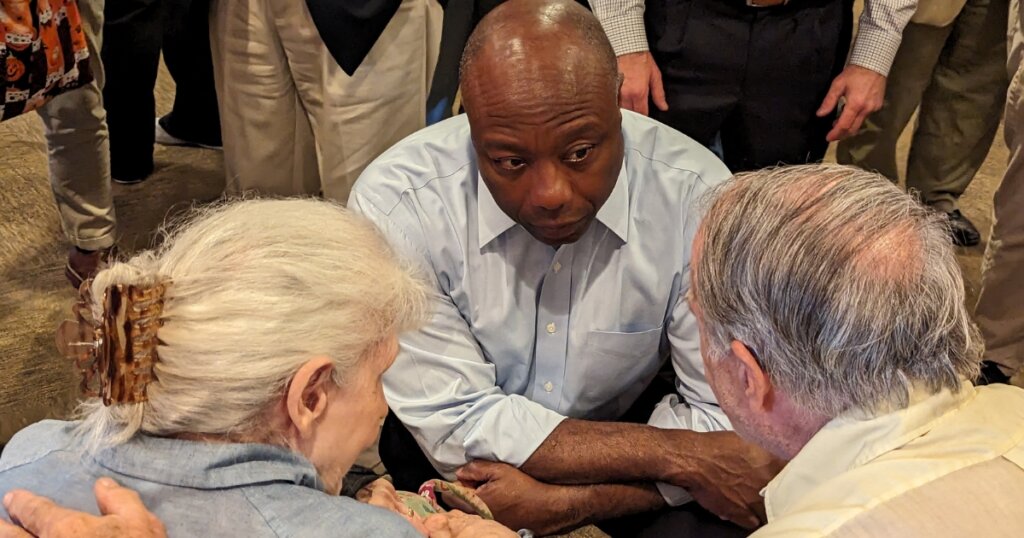
Tim Scott says kids need more exposure to conservatism
While many Republicans across the country have spent the last few years arguing that public schools are being used to indoctrinate kids into leftist...


